A guide to establishing and maintaining effective research strategies
Starting any type of research can be intimidating. Whether you’re digging into a topic of which you are or aren’t familiar, it’s always best practice to establish a plan to keep you on track. Keyword research is a unique process as it draws on multiple aspects of a market, specific brands, and user habits.
Tools to get you on the right track
If you’re new to keyword research, a great way to familiarize yourself with the lingo is to read. There are tons of free guides online that you can refer to along the way! Sources like Moz and SEMrush also offer keyword research tools which you can use to conduct your research. I’ve found that other guides like those from Mongools and Ahrefs are very current and present the information in a way that is super easy to digest.
- How to Do Keyword Research for SEO: A Beginner’s Guide – Hubspot
- How To Do Keyword Research for SEO — Ahrefs’ Guide
- Find Competitive Keywords, Ranking Distributions, & Common Questions: 3 Workflows for Smarter Keyword Research – Moz
- SEO Basics – Mangools
- The Only SEO Checklist You Will Need in 2020: 41 Best Practices – SEMrush
Starting your keyword research
In addition to reading blogs and compiling resources, asking yourself the following questions will help you and your team further establish and maintain your SEO strategies.
- What are our SEO Goals?
- What resources will we utilize to conduct our research?
- Which keywords do we already rank for?
- How do our competitors rank?
- How will we measure our progress?
Picking your own brain is a helpful technique at every point of the research process. It’s important to always evaluate both your personal strategies as well as the technical strategies that guide your research. Maintaining this mentality will ensure your research is focused and productive.
What are our SEO goals?
Before beginning any type of research it’s always beneficial to define your goals. Whether they’re small or large goals, understanding your intentions and revising them throughout your research will help you arrive at and maintain a productive mindset. Visualize your goals and how your keyword research will supplement them.
There are many ways in which keyword research can supplement SEO goals. Keyword research can help gather data to plan site architecture, to guide a PPC or SEO campaign, and to expand a brand’s audience. Keyword research also provides the data needed to better understand how people use language in search, which you can use to optimize content.
While most SEO revolves around data and analysis, all of your SEO goals don’t have to be technical. Conducting keyword research can be a great personal learning experience, and establishing that as a goal is completely valid!
What resources will we utilize to conduct our research?
Revisit the resources outlined earlier and check out what tools they offer. While they might not all be free, they will allow you to conduct effective keyword research and help you meet your overall SEO goals.
Here are a couple recommendations:
When we conduct keyword research for our clients, we create categories of keywords and treat them as lists that we continue to add on to. This is a helpful organization strategy because once you export your data from any of the above mentioned tools, you can quickly copy and paste the keywords into a master spreadsheet that is broken down by keyword category.
For example, let’s say you know you want to gather data for a food delivery service in Chicago. A possible category can be “Fresh Food Delivery Chicago.”
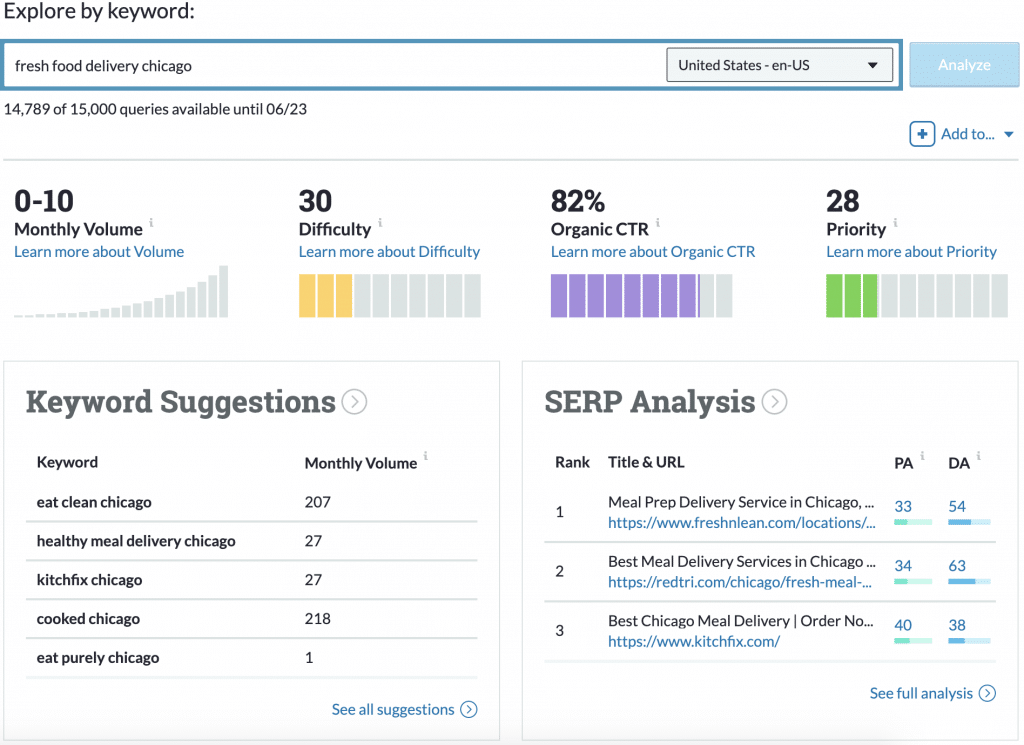
When using Moz Keyword Explorer, type in your seed keyword and you are prompted with dozens of keywords within the Keyword Suggestions section.
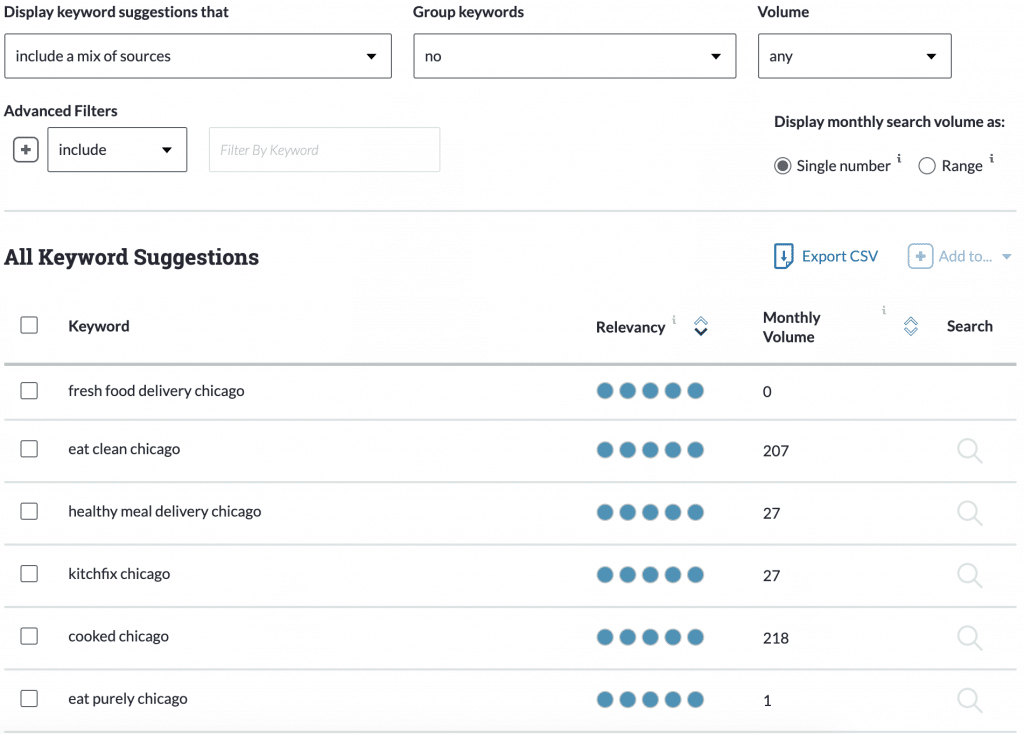
Once you’re satisfied with the amount of keywords you’ve gathered, add them to a Keyword List within Moz (the title of the list being the category) and export as CSV. Then, you can combine those sheets into a large keyword research spreadsheet that is ready to be analyzed.
How are we already ranking?
Get an idea of the digital environment your content currently occupies in order to determine your desired ranking. You should already have an idea of where you rank based on overall brand goals and/or client objectives. Performing a simple analysis within Google Search Console will give you a good idea of your current ranking.
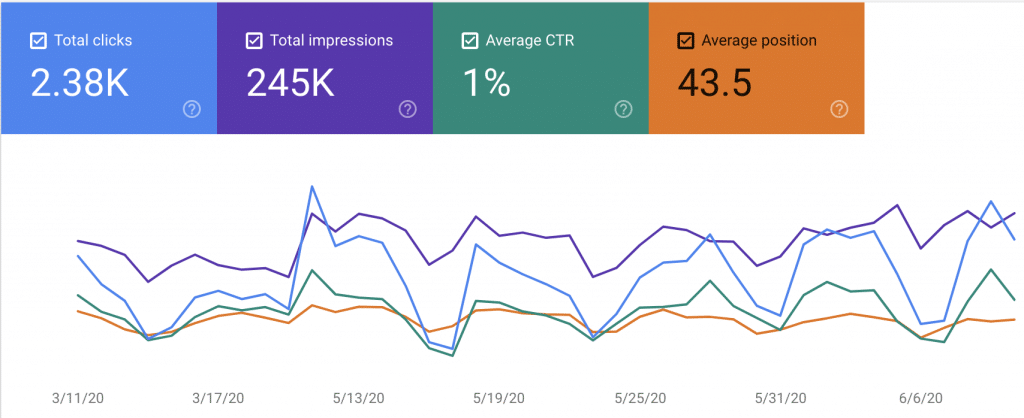
Using Google Search Console and Google Analytics, you can see which pages your users are engaging with the most. You are able to see the searches that bring users to your site. This will allow you to understand what you’re doing well on specific pages and where there is room for improvement.
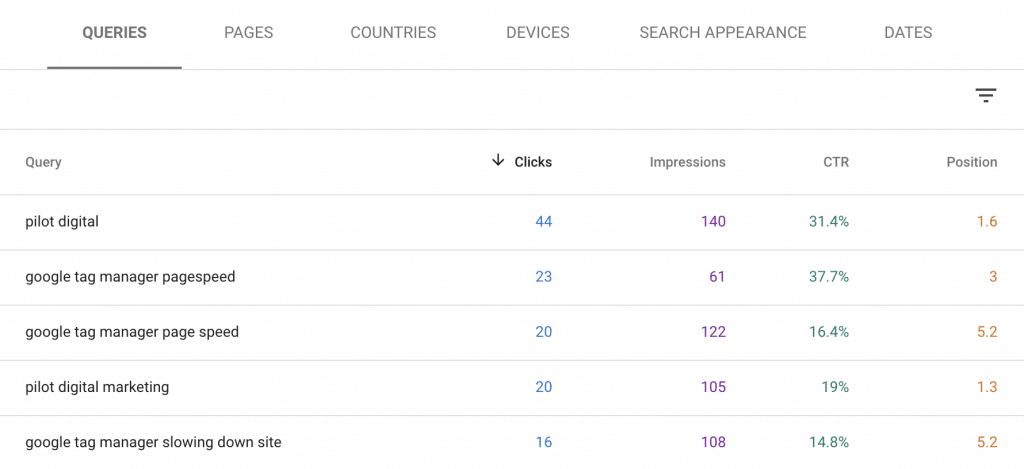
From here, you can synthesize your findings to draw smart conclusions that will supplement your SEO goals. Once you understand where you are currently ranking you’ll have a better idea of where your traffic is coming from, where you want your traffic to come from, what people are searching for, and who is landing on your site. This information is critical in understanding your users and how they are interacting with your content and will help you further plan your research.
How does our competition rank?
Using domain analysis tools will provide insight into what keywords your competitors are performing well with. From there, you can perform a more in-depth search to support your goals. Tools like SEMrush and Moz provide detailed breakdowns of competitor rankings. In SEMrush, the Competitive Research Toolkit Dashboard allows you to compare multiple domains.
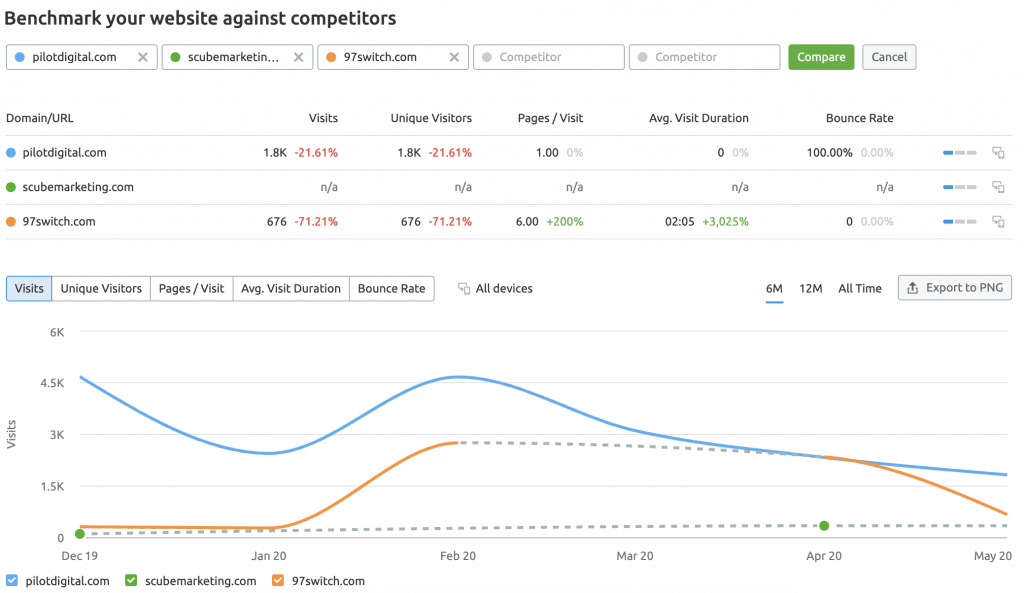
Get a more detailed view by navigating to the Keyword Gap section of the dashboard.
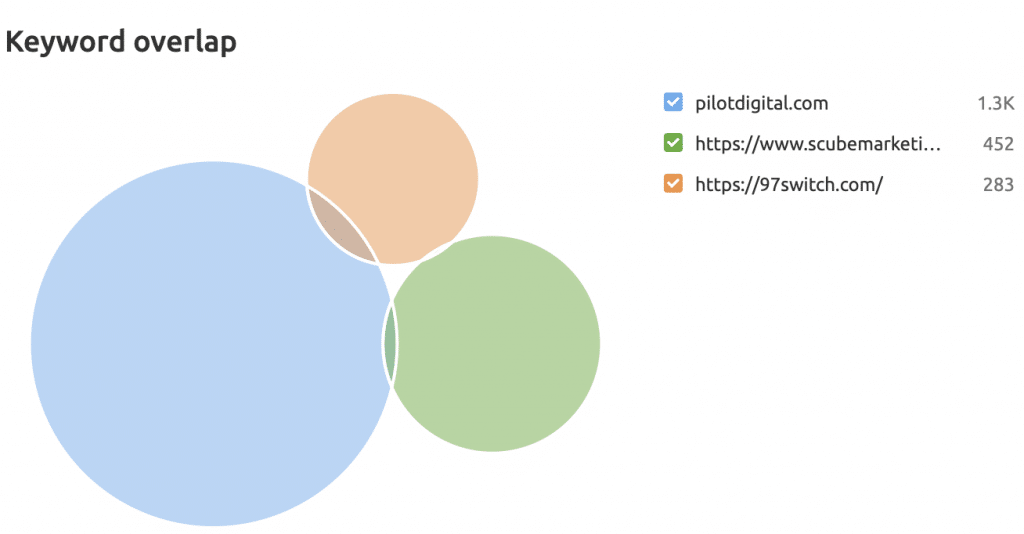
Understanding your competitors will give you a broad view of how consumers are navigating specific types of content within your market. Competitor data presents many potential research opportunities. The competitor data that you gather can provide insight on new keyword topics that will allow you to expand your research even more. Moving forward, the competitor data can represent a large section of the market you are navigating.
How will we measure our progress?
Tools like Moz Campaigns will let you continue to monitor and evaluate your data. You can create a campaign in Moz by entering the site information and keywords you want to track. Moz will keep your site’s information up to date with the most recent crawl issues, ranking keywords as well as changing domain authority. Moz will also update your email with information about your campaign, making it super easy to track.
It’s important to monitor your data by keeping track of how keywords rank and how traffic increases or decreases over time. Continue to evaluate your current strategies to decide if there are any areas that can be improved. Research a range of tools to figure out how you can most effectively measure your progress. Find what works best for you and your team.
Summary
- Identify your SEO goals and strategies
- Work together with your team to understand your research intentions. Think deeper about WHY you’re doing this research.
- Utilize analysis tools and other informational resources
- Evaluate, evaluate, evaluate
- Take notes for the next time you conduct keyword research. Document what worked for you and what wasn’t as effective.
Refer to this infographic when starting your research. It can be used as a checklist to help guide your research. Download here.
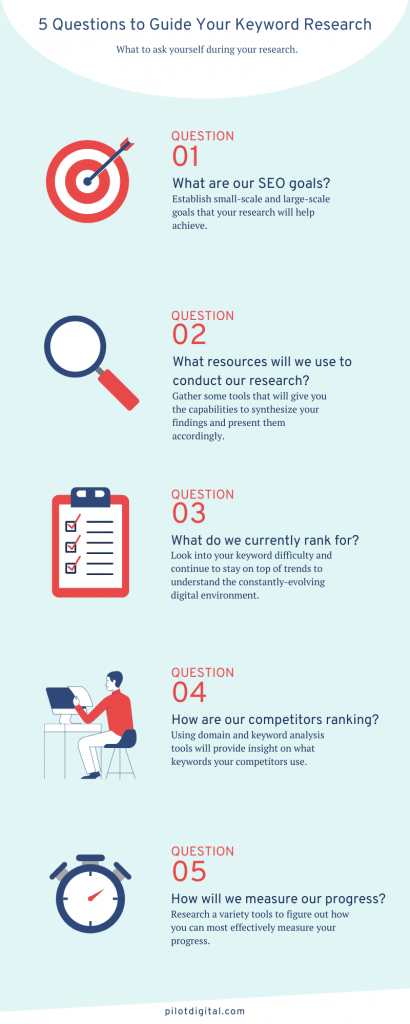
Want to collaborate on setting SEO goals and conducting keyword research? Let’s chat.



